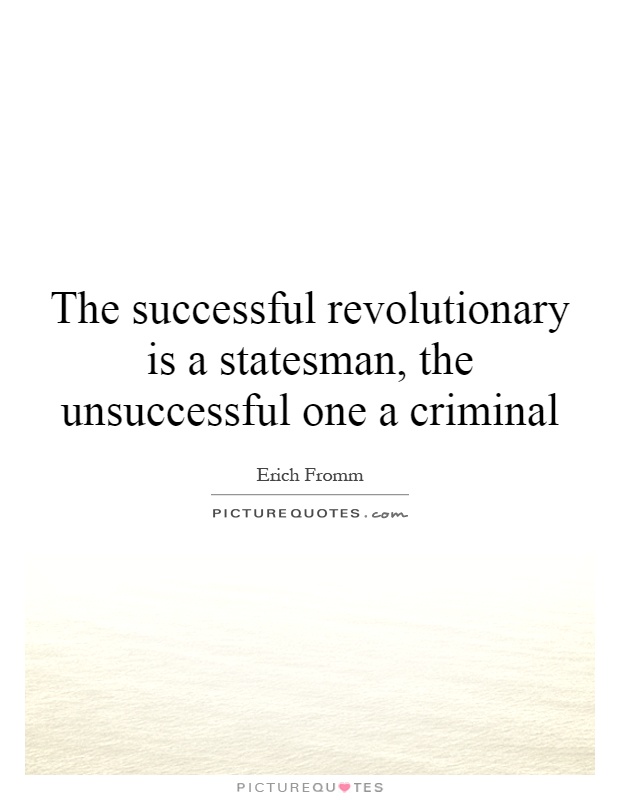The successful revolutionary is a statesman, the unsuccessful one a criminal

The successful revolutionary is a statesman, the unsuccessful one a criminal
Erich Fromm, a renowned psychologist and social philosopher, believed that the successful revolutionary is a statesman, while the unsuccessful one is a criminal. This statement reflects Fromm's deep understanding of human nature and the complexities of social change.Fromm argued that a successful revolutionary is someone who is able to bring about positive and lasting change in society through peaceful and democratic means. This individual possesses the qualities of a statesman, such as wisdom, integrity, and a deep commitment to the well-being of the people. They are able to inspire others to join their cause and work towards a common goal for the greater good of society.
On the other hand, an unsuccessful revolutionary is someone who resorts to violence, coercion, and manipulation in their pursuit of change. This individual is driven by selfish motives, such as power, fame, or personal gain, rather than a genuine desire to improve the lives of others. They lack the qualities of a statesman and instead exhibit criminal behavior, such as deceit, aggression, and disregard for the rule of law.
Fromm believed that true revolutionaries must adhere to ethical principles and moral values in their quest for social transformation. They must be guided by a deep sense of justice, compassion, and empathy for their fellow human beings. By embodying these virtues, they can effectively challenge oppressive systems and bring about meaningful change that benefits all members of society.












 Friendship Quotes
Friendship Quotes Love Quotes
Love Quotes Life Quotes
Life Quotes Funny Quotes
Funny Quotes Motivational Quotes
Motivational Quotes Inspirational Quotes
Inspirational Quotes